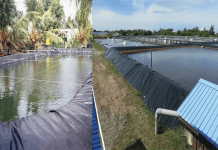When it comes to custom molding, choosing the right material is a critical decision that can significantly impact the quality and performance of your final product. Whether you are in the automotive, aerospace, or any other industry, selecting the appropriate material is essential for achieving the desired results. In this article, we will explore the key factors to consider when choosing the right material for custom molding, with a focus on achieving the best outcomes for your specific needs. In addition, cxinforging.com can provide valuable guidance and expertise in material selection for your specific application.
Material Selection Considerations
Before diving into the specifics of material selection, it’s important to understand the key considerations that should guide your decision:
Application Requirements
The first step in selecting the right material is to understand the application requirements thoroughly. Consider factors such as mechanical properties, temperature resistance, corrosion resistance, and any other specific needs unique to your project.
Cost Constraints
Budgetary constraints often play a significant role in material selection. Balancing performance requirements with cost-effectiveness is crucial to avoid overspending on materials that provide more than what your project demands.
Manufacturing Process
The chosen material should be compatible with the manufacturing process, whether it involves forging, extrusion, or other custom molding techniques. Compatibility ensures a smoother production process.
Environmental Considerations
In today’s world, environmental sustainability is a growing concern. Consider whether your material choice aligns with your organization’s sustainability goals and environmental regulations.
Common Materials for Custom Molding
Carbon Steel
Carbon steel is a versatile material known for its strength and durability. It is often used in applications that require high mechanical properties, making it suitable for components in machinery and automotive industries.
Stainless Steel
Stainless steel is corrosion-resistant and can withstand high temperatures, making it ideal for applications where hygiene and durability are crucial, such as in the food and medical industries.
Aluminum Alloy
Aluminum alloys are lightweight and have excellent heat conductivity. They are commonly used in industries such as aerospace, automotive, and electronics due to their strength-to-weight ratio.
Copper Alloys
Copper alloys offer exceptional electrical conductivity and corrosion resistance. They are frequently used in electrical and electronic applications, as well as plumbing and heating systems.
Titanium
Titanium is known for its high strength-to-weight ratio, corrosion resistance, and biocompatibility. It finds applications in aerospace, medical implants, and high-performance sports equipment.
Matching Materials to Applications
It’s essential to match the material properties to the specific requirements of your application to select the right material for custom molding:
Mechanical Properties
Consider the required tensile strength, hardness, and toughness of the material. For structural components, higher-strength materials like steel may be necessary, while electrical components may require materials with good conductivity.
Temperature Resistance
Determine the temperature range your components will be exposed to and select materials that can withstand these conditions without degrading.
Corrosion Resistance
If your application involves exposure to harsh environments or chemicals, prioritize materials with excellent corrosion resistance, such as stainless steel or certain alloys.
Weight Constraints
In industries where weight is a critical factor, like aerospace and automotive, opt for lightweight materials like aluminum or titanium.
Environmental Impact
Consider the environmental impact of your material choice and explore sustainable alternatives if necessary.
Conclusion
Choosing the right material for custom molding is a crucial step in the manufacturing process. It requires a thorough understanding of application requirements, cost considerations, manufacturing processes, and environmental concerns. By carefully evaluating these factors and selecting a material that aligns with your project’s needs, you can ensure the success and longevity of your custom-molded components.







